Categories
Religion
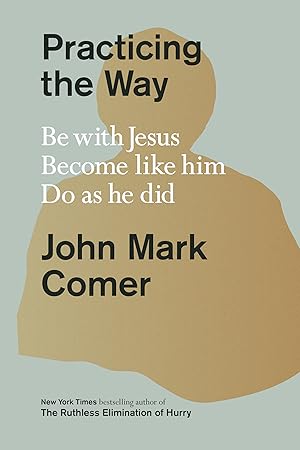
Practicing the Way: Be with Jesus, Become Like Him, Do As He Did
John Mark Comer
The author of the international bestseller The Ruthless Elimination of Hurry calls us to rediscover the path that leads to a deeper life with God . “One of the most important books I have read in a decade . . . If we would all follow in this way, our lives would change and the world would change.”—Jennie Allen, author of Get Out of Your Head and Find Your People We are constantly being formed by the world around us. To be formed by Jesus will require us to become his apprentice. To live by what the first Christian disciples called a Rule of Life—a set of practices and relational rhythms that slow us down and open up space in our daily lives for God to do what only God can do—transforms the deepest parts of us to become like him. This introduction to spiritual formation is full of John Mark Comer’s trademark mix of theological substance and cultural insight as well as practical wisdom on developing your own Rule of Life. These ancient practices have much to offer us. By learning to rearrange our days, we can follow the Way of Jesus. We can be with him. Become like him. And do as he did.
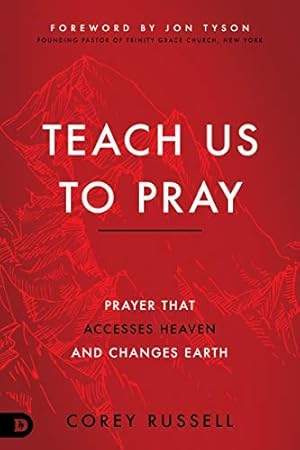
Teach Us to Pray: Prayer That Accesses Heaven and Changes Earth
Corey Russell, Jon Tyson
Learn how to access heaven and release it into the earth! Jesus’ disciples heard every message, witnessed every miracle and deliverance and healing and we don’t see one recorded time where they asked Him, “Teach us to preach,” or “Teach us to heal,” or “Teach us to deliver.” After spending three and a half years with the Son of God in the flesh, they cried out to Him, “We want Your prayer life… Teach Us to Pray!” They understood that Jesus’ public life of ministry was the result of His private life of prayer with the Father. It’s in light of this reality that we must begin to shift all of our discipleship and training of the next generation. We are living in turbulent days, therefore we must get back to the foundational realities of intimate connection with heaven. We must come out of the swirl of noise and busyness and distraction and reconnect to heaven so that we will see heaven’s invasion into the earth. Corey Russell has given himself to 30-plus hours of prayer a week for the last 20 years, and longs to take the lessons he has learned through all the seasons of life and impart them to as many as will receive. Discover To tune out the noise, distractions, and busyness of our culture and cultivate hours at the feet of JesusTo allow the Lord to remove all of the props we build our lives on and hear His voiceTo ascend to the throne of God and see His power manifested in our families, our circumstances, and our worldTo persevere in prayer when you hit walls of resistanceTo be sent with authority and power and compassion into the world around youTo build a life of consistent prayer that hosts the anointing of prayerTo go from being an echo of someone else’s message to becoming a voice in your generationTo develop a deeper intimacy with the Holy SpiritTeach Us to Pray will ignite your prayer life from one that is filled with boredom into one that is filled with power!
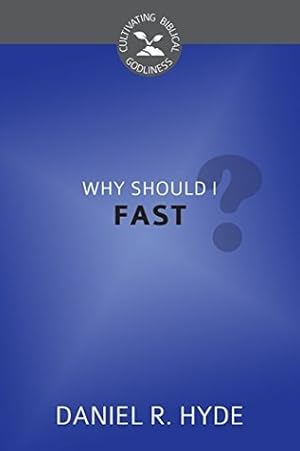
Why Should I Fast?
Daniel R. Hyde
Today, the church seems to have forgotten about the spiritual discipline of fasting. Most of us have never heard a sermon about it, and few of us have ever practiced it. We think of fasting as an antiquated relic of the past. So why should we fast in an age of fast food? Pastor Daniel R. Hyde argues that “fasting is actually a basic biblical teaching and practice, one that is vital to cultivating godly living in an ungodly generation.” Fasting is a means to the end of abiding, deep, and personal communion with the triune God through prayer. The author explains what fasting is, provides biblical examples of it, reminds us of what Jesus taught regarding it, and tells us how to go about it. What Is Fasting? What are the Biblical Examples of Fasting? Did Jesus Address Fasting? How Should I Fast? Daniel R. Hyde is the pastor of the Oceanside United Reformed Church in Carlsbad/Oceanside, California. An author of several books, he serves as an adjunct instructor of systematic theology and missions at Puritan Reformed Theological Seminary. “If you like a lazy and complacent Christian life, this book is dangerous because it shows in a convincing way that fasting belongs to Christianity. Danny Hyde shows from the Bible, the words of Jesus, the early church, the Reformers, and the Puritans how and why Christians should fast. This message is an appeal to Christians that while our old nature would prefer feasting to fasting, our new nature will experience spiritual feasting by fasting.” — Dr. Willem van Vlastuin, professor of theology and spirituality of Reformed Protestantism, Vrije Universiteit Amsterdam
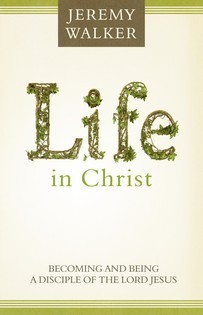
Life in Christ: Becoming and Being a Disciple of the Lord Jesus Christ
Jeremy Walker
'To be a disciple of Jesus Christ is to be in a position of privilege and blessing beyond anything the world might offer', begins author Jeremy Walker. Life in Christ explores the unsearchable riches of the Christian pilgrimage and traces its trajectory, highlighting key elements in the believer's experience. Do you wrestle with assurance? Have you grasped the engagement demanded in Christian living? Do you find the way wearying at times? Do you struggle with your Christian identity? Walker provides instruction for Christians to assess their own standing and progress in the faith-exhorting and equipping and always pointing them ahead to the hope of the glory of Christ. Along the way, he encourages God's people to live a life to the praise of His glory as he examines some of the basic truths that establish and direct a true child of God. Table of 1. Looking to Jesus 2. United to Christ 3. The Unsearchable Riches of Christ 4. Sons of God 5. The Jewel of Assurance 6. The Marks of God's Children 7. A Work in Progress 8. A Life in Review
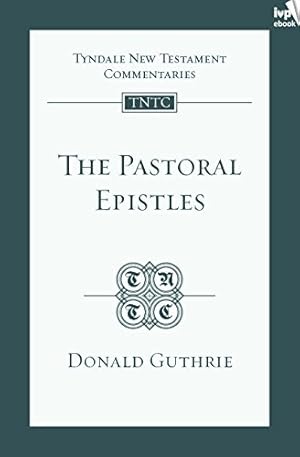
The Pastoral Epistles
Donald Guthrie
In his letters to Timothy and Titus, the apostle Paul is concerned with church order, defending correct doctrine and passing on the faith. Donald Guthrie's introduction to the volume, along with a helpful appendix, provides a strong defence of Pauline authorship of the Pastoral Epistles, setting them in the distinct historical context of Paul's later ministry. Guthrie's commentary bears out the idea of faith seeking understanding: he has drunk deeply from the pastoral wisdom in these letters, and in turn he offers us a deeper understanding of Paul's message to the church.

How Can I Benefit from My Baptism?
Ian Macleod
While it is obvious to most Christians that there is great value and benefit in their baptism, it is not always obvious to them how they benefit from it. How can we profit from our baptism? Can we profit from it more? Ian Macleod answers these questions pastorally and biblically, pointing us to the riches of grace that have been signified and sealed to us in our baptism and showing us how the benefits derived from baptism through faith in Christ and with the Spirit’s blessing are lifelong.
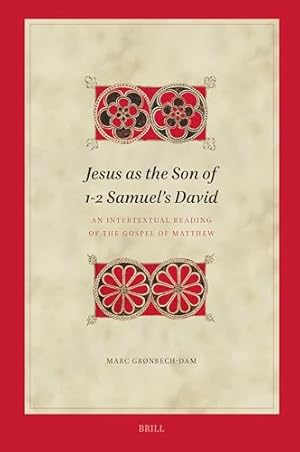
Jesus as the Son of 1-2 Samuel's David: An Intertextual Reading of the Gospel of Matthew
Marc Grønbech-Dam
Incubation in Early Byzantium: The Formation of Christian Incubation Cults and Miracle Collections
Ildikó Csepregi
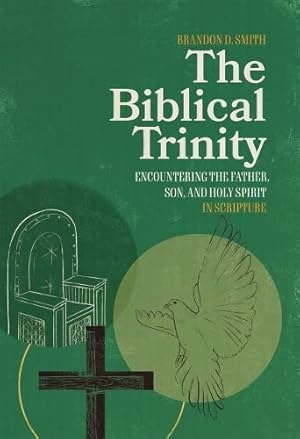
The Biblical Trinity: Encountering the Father, Son, and Holy Spirit in Scripture
Brandon D. Smith
The Trinity is God as revealed in the Bible. The Bible doesn't give us a systematic statement of the doctrine of the Trinity. But that doesn't mean the Trinity is not biblical. In The Biblical Encountering the Father, Son, and Holy Spirit in Scripture , Brandon D. Smith proclaims the Trinity from the Bible. The doctrine arises not from a handful of prooftexts but from the fullness of what the Bible says about God. Through short reflections on fifteen key New Testament passages in conversation with the Old Testament, Smith shows how God’s word reveals the Trinity. The book concludes with three rules for how to encounter the truth and beauty of our Triune God in all of Scripture.
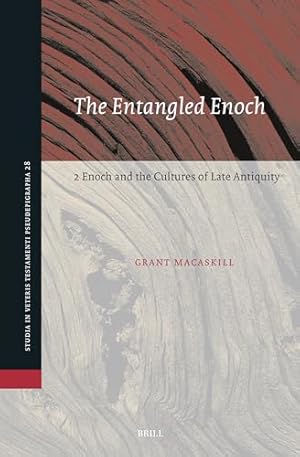
The Entangled Enoch: 2 Enoch and the Cultures of Late Antiquity
Grant Macaskill

Discovering Delight: 31 Meditations on Loving God's Law
Glenda Faye Mathes
Does the concept of loving law sound strange to you like two things that just don't go together? Christians today often don't want to read about law because they would rather revel in gospel and grace. Yet the Bible clearly links law with love, a connection we see in Psalm 119. In these insightful meditations, author Glenda Mathes sheds light on this 'long psalm that often gets short shrift.' A closer look at Psalm 119, in particular, and several other psalms and Old and New Testament passages encourages readers to discover the delight of God's written Word and rejoice in loving His law.
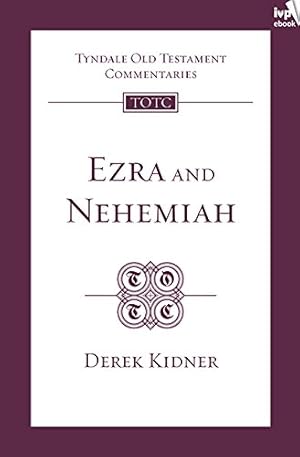
TOTC Ezra and Nehemiah: Tyndale Old Testament Commentary
Derek Kidner
"The chequered story of the Kings, a matter of nearly five centuries, had ended disastrously in 587 B.C. with the sack of Jerusalem, the fall of the monarchy and the removal to Babylonia of all that made Judah politically viable. It was a death to make way for a rebirth." So begins Derek Kidner in this introduction and commentary to the books of Ezra and Nehemiah which chart the Jews' return from exile to Jerusalem and the beginnings of that rebirth. As the drama unfolds, we see how international politics, nationalist pride, wise leadership, political intrigue and opportunism, internal dissension and compromise all shape events. But above all and through all we see the good hand of God at work. The original, unrevised text of this volume has been completely retypeset and printed in a larger, more attractive format with the new cover design for the series.

The True Devotion to the Blessed Virgin
Louis de Montfort
True Devotion to the Blessed Virgin is one of the greatest and most celebrated books ever written about Our Lady. Praised by popes, mystics and theologians, this profound and powerful book presents Mary as the essential and infallible key to the heart of Jesus. Nowhere will you find a deeper and more life-changing book on that quintessentially Catholic the role of the Blessed Virgin Mary in the life of the Christian and the life of the Church. Unpublished during the saint's life time, it has enjoyed the endorsement of the many outstanding popes the Church has been blessed with since its discovery in 1842. John Paul II, in particular, was its tireless champion, crediting True Devotion with a turning-point in his spiritual life, adopting his motto, Totus tuus , from St. Louis. The key to De Montfort's Marian spirituality is that he considered Our Lady to be the infallible and chosen gate to the heart of Christ - To Jesus through it is Christ Himself Who is at the centre of True Devotion. This edition has been re-typeset using the text of the 1947 edition originally published by The Fathers of the Company of Mary, Colbury, Totton under the imprimatur of Johannes Henricus, Episcopus Portus Magni, 21st May 1947. 5.5. x 8

True Devotion to Mary: with Preparation for Total Consecration
Louis de Montfort, Frederick William Faber
Considered by many to be the greatest single book of Marian spirituality ever written, True Devotion to Mary is St Louis de Montfort's classic statement on the spiritual way to Jesus Christ though the Blessed Virgin Mary. Beloved by countless souls, this book sums up the entire Christian life, showing a way of holiness that is short, easy, secure, and perfect—a way of life chosen by Our Lord Himself. In this beautiful and sublimely inspiring book, de Montfort explains the wonderful spiritual effects which true devotion to Mary brings about in a person's life. This new edition in the TAN Classic format includes an expanded Preparation for Total Consecration with readings and prayers. There is no better way to advance quickly in holiness, no better way to please God, and no better way to guarantee one's present sanctity and eternal salvation than the true devotion to Mary.
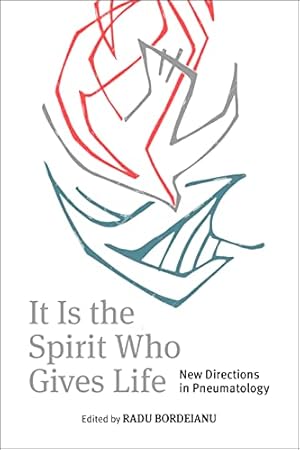
It is the Spirit Who Gives Life: New Directions in Pneumatology
Radu Bordeianu
Who is the Holy Spirit? What is the Holy Spirit? The answers to these questions were so obvious in the first centuries of Christian history, that the New Testament and the earliest Christian writers did not feel the need to deliberately address the identity of the Spirit. The more stringent question was what does the Spirit do in the Hebrew Scriptures, in the life of Jesus, in the community of disciples, in the Church, and in the world? These same questions, however, did not have the same obvious answers to subsequent generations. Writing in the fourth century, Gregory of Nazianzus observed a slow progress of better understanding the identity and mission of the Holy Spirit throughout the centuries; his opponents still referred to the Spirit as a "strange," "unscriptural," and "interpolated" God (Or. 31). One would expect that today, centuries later, pneumatology would be exponentially further developed than in the patristic era. And yet, contemporary theology only rarely asks who the Spirit is and what the Spirit does. That is where the present volume attempts to bring a contribution, by addressing early Pneumatologies reflected in the Scriptures and the age of the martyrs, historical developments in patristic literature and spiritual writings, and contemporary pneumatological themes, as they relate to ecumenism, ecology, science, ecclesiology, and missions. The present volume gathers essays authored by eleven world-renowned theologians. Each contribution originated as a public lecture addressed to theologians and an educated general audience, followed by a private colloquium in which the lecturers conferred with scholars who are experts in the field. Thus, the present volume offers a multifaceted approach to Pneumatology, in an ecumenical spirit.
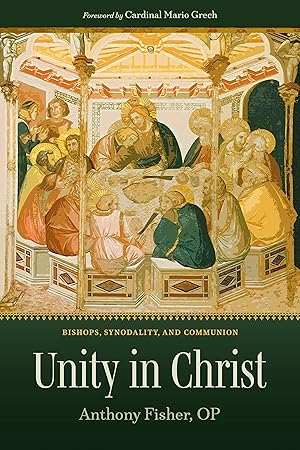
Unity in Christ: Bishops, Synodality, and Communion
Anthony Fisher, Cardinal Mario Grech
What does episcopal fraternity and communio look like? This central question is explored through the erudition and experience of Archbishop Anthony Fisher, Catholic Archbishop of Sydney, Australia. Unity in Christ , based upon a series of addresses given to the United States Conference of Catholic Bishops (USCCB) at their Special Assembly in 2022, delves into the themes associated with episcopal unity. By surveying the Christian tradition, beginning with the scriptures and then through various periods (Apostolic generation, patristic, scholastic, Vatican II, recent post Vatican II developments such as synodality) a coherent picture of episcopal togetherness is presented. What becomes clear is that unity among Christ's disciples and their successors is not simply an ideal but rather a constitutive element of their office. They are called to love as Christ loved, expressed above all through genuine friendship with one another. The consequences of this fraternity and communio have implications in areas such as spirituality, preaching and fraternal correction, among others. This second feature, the implications of episcopal fraternity and communio, are explored through Archbishop Fisher's twenty years of experience as a bishop of the Catholic Church. By providing concrete examples of lived episcopal fraternity and communio, Fisher offers a glimpse into both the challenges and fruits of living out Christ's call that "they might all be one" (Jn 17:21).

Israel’s Day of Light and Joy: The Origin, Development, and Enduring Meaning of the Jewish Sabbath
Jon D. Levenson
This book begins by exploring the mysterious origins of an institution so familiar that most of us never wonder where it came from―the seven-day week. Jon D. Levenson then focuses on the historical development of the Jewish Sabbath and the rich range of theological and ethical meanings it has acquired over the centuries. Levenson evaluates the theory that the Hebrew word šabbāt derives from Akkadian and that the Sabbath may have begun as a day of ill omen, only later to be reinterpreted as the joyous festival that consummates the seven-day week. He explores the quasi-magical character of the number seven in ancient Near Eastern and Mediterranean compositions and examines the revealing variation of the Sabbath commandment between the two biblical versions of the Decalogue in Exodus and Deuteronomy. He also treats sabbatical law in the Second Temple and rabbinic periods, critiquing contemporary efforts to extract a spirituality from the Sabbath that is divorced from larger questions of communal identity, normative practice, and religious affirmation. Levenson concludes by discussing modern challenges to Sabbath observance and the surprising prospects for its continuation. Written by an eminent scholar in the field, this sophisticated inquiry bridges the gap between studies that explore the spiritual meaning of Jewish Sabbath observance and those that focus strictly on the history of the tradition. It will appeal to a wide audience of academics and lay readers.
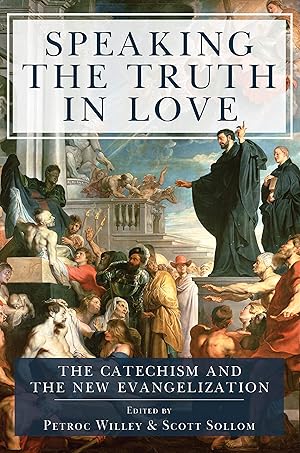
Speaking the Truth in Love: The Catechism and the New Evangelization
Petroc Willey, Scott R. Sollom
It is now just over twenty-five years since the publication of the Catechism of the Catholic Church. It is also more than thirty-five years since St. John Paul II called for a new evangelization to be characterized by a new ardor, a new expression, and new methods. The conviction common to the contributors in this volume is that the Catechism flows from just such an ardor. Speaking the Truth in Love draws together a group of Catholic scholars and field practitioners to focus on the capacity of the Catechism to be a powerful point for the renewal of Christian catechesis, education, and culture through its reclamation of the Christian heritage, its explanatory power, and its compelling articulation of a civilization characterized by faith, hope, and love. A special focus of the book is how the Catechism provides a creative reference point for pedagogical renewal in the Church. "Since the publication of the Catechism of the Catholic Church in 1992, catechists and pastors of souls have discovered how it has served as a great instrument of the New Evangelization. We have awaited this volume as a mature reflection on its vital place in the hope expressed by St. John Paul II for a springtime of New Evangelization. In these pages you will find testimony on how, through the Catechism, this springtime is already taking shape." —Most Rev. Mark Davies, Bishop of Shrewsbury, Province of Birmingham, England
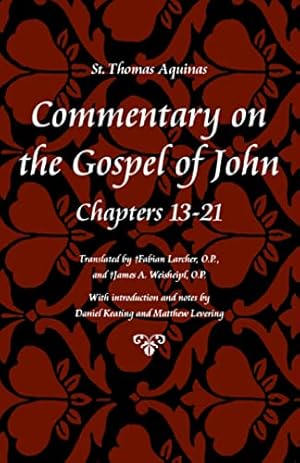
Commentary on the Gospel of John, Books 13-21
Thomas Aquinas, Daniel Keating, Matthew Levering, James A. Weisheipl, Fabian Larcher
Thomas Aquinas possessed excellent knowledge of the commentaries of Origen, John Chrysostom, and Augustine. On the basis of this foundation, he produced his own commentary on the Gospel of John as part of his task as a Master of the Sacred Page. Considered a landmark theological introduction to the Fourth Gospel, these lectures were delivered to Dominican friars when Aquinas was at the height of his theological powers, when he was also composing the Summa theologiae. For numerous reasons, the Summa has received far more attention over the centuries than has his Commentary on the Gospel of John. However, scholars today recognize Aquinas's biblical commentaries as central sources for understanding his theological vision and for appreciating the scope of his Summa theologiae. The first English translation of Aquinas's Commentary on the Gospel of John by Fabian Larcher and James Weisheipl, originally published nearly two decades ago and long out of print, is available to scholars and students once again with this edition. Published in three volumes simultaneously, it includes a new introduction and notes pointing readers to the links between Aquinas's biblical commentary and his Summa theologiae. When a verse from the Gospel of John is directly quoted in the Summa theologiae, the editors note this in the Commentary. Aquinas's patristic sources, including Origen and Augustine, are carefully identified and referenced to the Patriologia Latina and Patrologia Graeca. The Commentary's connections with Aquinas's Catena Aurea are also identified. The three volumes in the Commentary on the Gospel of John are sold individually and as a set. Books 1-5: Books 6-12: Books 13-21: information above Three-Volume
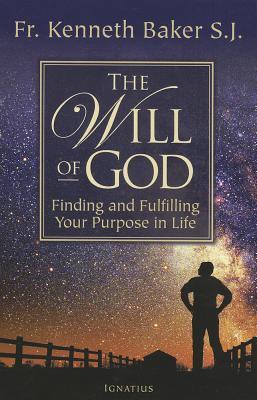
The Will of God: Finding and Fulfilling Your Purpose in Life
Kenneth A. Baker
God created us for a purpose. Each one of us is unique, but each one has a destiny of eternal happiness. We reach this destiny by freely embracing the will of the God who made us, as it is manifested to us in the circumstances of our daily life. This book provides the modern reader with guidance on how to reach intimacy with God and happiness with him forever by bringing one's life into conformity with his will. The book consults many sources--the Bible, the teachings of the Church, and the lives of the saints--and in all three the formula is the same: Obey God in all things. In discerning the will of God, there are many questions to consider: What is the relationship between human freedom and divine Providence? What good can result from sin and suffering? What is a vocation, and how does a person hear this calling from God? These questions are considered in chapters divided according to the verses of Psalm 119, which praise God's commands as expressions of his will. All the saints of the Church have this in common: They sought to discover the Creator's will for them and then tried to accomplish it to the best of their ability and according to the grace they received from God. The task of all of us is to do likewise.

Rosary Warfare
Society of Saint Pius X
This book contains numerous ways of praying the Rosary with many beautiful colored pictures of stained glass windows to inspire you. Specially included are a Douay-Rheims Scriptural Rosary, two additional Rosary formats with meditations for each Hail Mary, the Rosary with added prayers to each Hail Mary, a Latin Vulgate Rosary and a Gregorian Chant Rosary. This book will be a great help for anyone wanting to meditate well upon the mysteries of the Rosary whether privately, with family or parish.
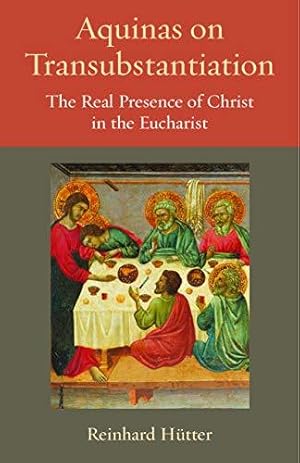
Aquinas on Transubstantiation: The Real Presence of Christ in the Eucharist
Reinhard Hütter
Aquinas on Transubstantiation treats one of the most frequently mis-understood and mis-represented teachings of Thomas Aquinas―Eucharistic transubstantiation. The study interprets Aquinas's teaching as an exercise of "holy teaching" (sacra doctrina) that intends to show theologically and back up philosophically the simple yet profound thesis that "transubstantiation" affirms nothing but the truth of Christ's words at the Last Supper―"This is my body," "This is my blood." Yet in order to achieve a contemporary ressourcement of this simple yet profound truth, it is necessary to probe the depths of Thomas Aquinas's philosophical interpretation of it. For Thomas Aquinas, in regarding the truth of Eucharistic conversion, it is faith that preserves the human intellect from missing or dismissing the mystery announced in Christ's words. Faith, however, is not intellectually blind, a faith that, as is often erroneously held, is commanded by arbitrary divine dictates to which the will submits in blind obedience. Rather, Aquinas takes faith is sustained, but not constituted, by an intellectual contemplation of the proposed mystery of faith, by faith seeking understanding. Thomas Aquinas unfolds this exercise of understanding guided by faith in the medium of a metaphysical contemplation that affords a profound intellectual appreciation of this central mystery of faith―precisely as mystery. Thomas's metaphysical contemplation of Eucharistic conversion gestures toward the blinding light of superintelligibility, experienced as the unique darkness that surrounds this sublime mystery of faith. A ressourcement in Thomas Aquinas's doctrine of transubstantiation also affords an renewed appreciation of the Church's affirmation of transubstantiation as the most apt term for the interpretation of the mystery of Eucharistic conversion and a greater precision of what is centrally at stake in this mystery in the ongoing ecumenical conversation of this most central Christian teaching. A doctrinally sound, ecumenically informed, and philosophically reflected contemporary Catholic theology cannot afford to ignore or dismiss Aquinas's surpassing account of Eucharistic conversion.
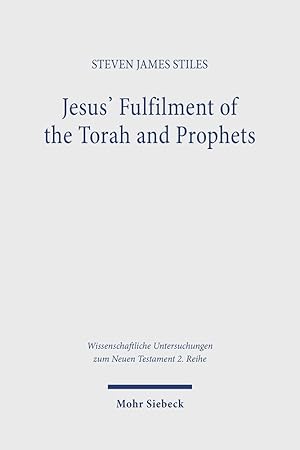
Jesus' Fulfilment of the Torah and Prophets: Inherited Strategies and Torah Interpretation in Matthew's Gospel
Steven James Stiles
Steven James Stiles examines Jesus' teaching about the Torah in the Gospel according to Matthew as a participant and contributor to the larger phenomenon of writing texts about the Torah in Second Temple Judaism. In this light, Matthew's presentation of Jesus and his teaching concerning the Torah align well with other interpretation strategies and patterns in Second Temple Judaism. Jesus' teaching on the Torah also addresses many of the same concerns other Jewish groups in antiquity had for following the Torah properly. This approach to examining Torah interpretation in Matthew's Gospel highlights the shared concerns and assumptions between Jesus followers and other Jewish groups in antiquity. It also provides significant insight into Matthew's depiction of Jesus as Israel's Davidic-Messianic and ultimate teacher of all things concerning the kingdom of heaven.
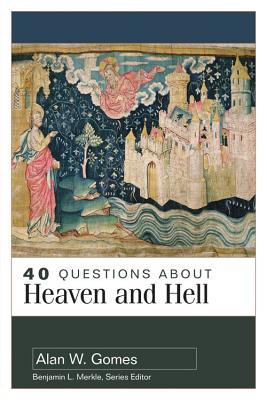
40 Questions about Heaven and Hell
Alan W. Gomes
In 40 Questions About Heaven and Hell, Alan Gomes surveys the Old and New Testaments to present a comprehensive picture of the afterlife. The question-and-answer format makes it easy to find answers to specific questions on heaven, hell, the intermediate state, the final judgment, and life in eternity. Readers will find solid answers to many vital questions: What should we conclude about those who claim to have seen heaven or hell? Is it possible for us to communicate with the dead? Is there such a place as purgatory? What will our resurrected bodies be like? What will we do in the eternal state? Will there be animals in the eternal state? What is hell like? How can a God of love send people to an eternal hell? Did Jesus "descend into hell" like the Apostles' Creed says? Study notes point to additional resources for learning, and reflection questions at the end of each chapter make the book ideal for small group studies.

A Guide to Fervent Prayer
Arthur W. Pink
Much has been written on what is usually called "the Lord's Prayer" (which I prefer to term "the Family Prayer") and much upon the high priestly prayer of Christ in John 17, but very little upon the prayers of the apostles. Personally I know of no book devoted to the apostolic prayers, and except for a booklet on the two prayers of Ephesians 1 and 3 have been scarcely any separate exposition of them. It is not easy to explain this omission. This book brings together a great biblical study on prayer based on the Holy Bible and will serve as an inspiration for you who want to know more about prayer.
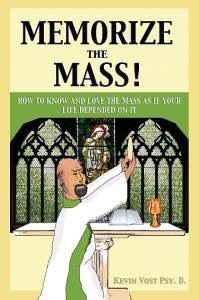
Memorize the Mass!: How to Know and Love the Mass As If Your Life Depended on It
Kevin Vost
In Memorize the Mass! Dr. Kevin Vost harnesses the powerful memory methods of Sts. Albert the Great and Thomas Aquinas to help readers learn and recall all the parts and rites of the Holy Sacrifice of the Mass, both the New Order and the Traditional Latin Mass. Memorize the Mass! will show you not merely how to memorize facts and repeat them like a parrot, but to come to know the names, the sequence, and the meanings of both forms of the Roman Rite of the Mass like a rational human being made in God's image and likeness with an intellect and a will. This completely guided and illustrated tutorial in the Catholic Art of Memory will enable you to engrave each and every one of those rites upon the tablet of your heart, knowing them literally forward and backward, and loving the Mass all the more for it!
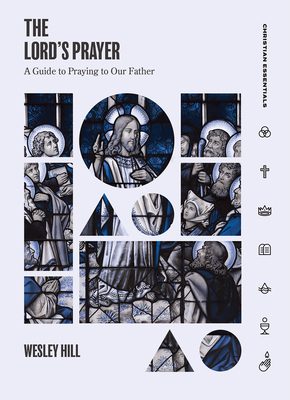
The Lord's Prayer: A Guide to Praying to Our Father
Wesley Hill
You pray it. But do you understand it? The Lord's Prayer has become so familiar to us that we don't think about what we're praying. It's a portrait of Jesus' heart. And in it Christians from different times, places, and traditions have been united. We pray it, but do we actually believe it? When Jesus taught his followers how to pray, he emphasized how uncomplicated it should be. There's no need for pretense or theatrics. Instead, simply ask for what you need as though you were speaking with your earthly father. This opens a window into Jesus' prayer life and presents us with a portrait of his heart for his followers. Wesley Hill re-introduces the Lord's Prayer. He shows us a God who is delighted to hear prayer. Petition by petition, in conversation with the Christian tradition, he draws out the significance of Jesus' words for prayer today.
On Worship: A Short Guide to Understanding, Participating In, and Leading Corporate Worship
H B Charles
What does it mean to worship—especially in spirit and truth? Christians hear the word “worship” a lot. From singing hymns and choruses to receiving “calls to worship,” on a Sunday morning, we’re certainly familiar with the term. But do we really have a grasp on what it means for the believer? For the Church as a whole? On Worship casts a vision for the biblical principles and practices of worship. Pastors and other church leaders will learn what the Bible teaches about worship and why it is so important to get this topic right. You’ll learn how to think practically through preparing and executing corporate worship services so that you can lead your congregation to worship wholeheartedly in spirit and truth. In this companion title to On Preaching and On Pastoring, H. B. Charles draws from over thirty years of planning and leading worship for local churches of varying denominations, traditions, and cultural backgrounds.
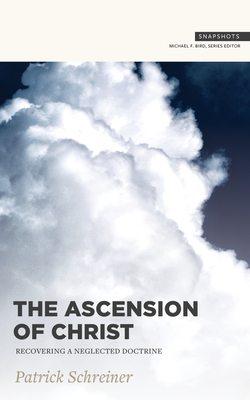
The Ascension of Christ: Recovering a Neglected Doctrine
Patrick Schreiner, Michael Bird
The Ascension is essential to the gospel The good news of Jesus includes his life, death, resurrection, and future return--but what about his ascension? Though often neglected or misunderstood, the ascension is integral to the gospel. In The Ascension of Christ, Patrick Schreiner argues that Jesus' work would be incomplete without his ascent to God's right hand. Not only a key moment in the gospel story, Jesus' ascension was necessary for his present ministry in and through the church. Schreiner argues that Jesus' residence in heaven marks a turning point in his three-fold offices of prophet, priest, and king. As prophet, Jesus builds the church and its witness. As priest, he intercedes before the Father. As king, he rules over all. A full appreciation of the ascension is essential for understanding the Bible, Christian doctrine, and Christ's ongoing work in the world.
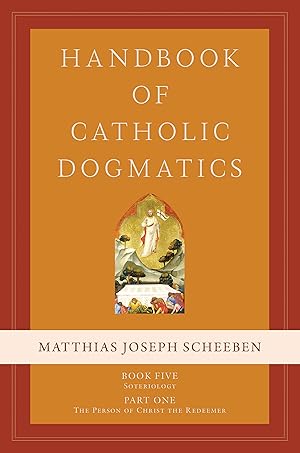
Handbook of Catholic Dogmatics 5.1
Matthias Joseph Scheeben
In Handbook of Catholic Dogmatics, Book V, Soteriology Part 1 Matthias Joseph Scheeben delineates who and what Jesus Christ is as the Incarnate Son of God in Person. With characteristic brilliance, Scheeben sets forth in this first half-volume the essential nature and attributes proper to Christ as the hypostatic union of God and man. Beginning with the Scriptural and traditional foundations, he elucidates the Catholic Church's traditional teaching on Christ's unity of Person in two natures as they were developed in response to the main Christological heresies of the early Christian centuries. On this basis, he then delves into the speculative depths of the hypostatic union itself as well as the attributes of the God-man that arise from this union. "[T]he translation of the Handbook of Catholic Dogmatics by the greatest speculative theologian of the nineteenth century into the modern lingua franca is an invaluable service to the future of the Church in the secular age. With his speculative penetration of the mystery of the Incarnation in the present volume—enriched by a comprehensive knowledge of patristic, scholastic, and modern theology—Matthias Joseph Scheeben preserves the mystery of Divine Revelation from attempts to naturalize it and the Church from the tendency to reduce it to a merely functional civil religion. He proves that even on the highest level of rational reflection the believer can give to modern man an account for 'the hope that is in him' ( cf . 1 Pet 3:15), which puts us in a position to clarify definitively our understanding of ourselves and of the world in light of the knowledge of God." —Cardinal Gerhard Müller— Prefect Emeritus of the Congregation for the Doctrine of the Faith